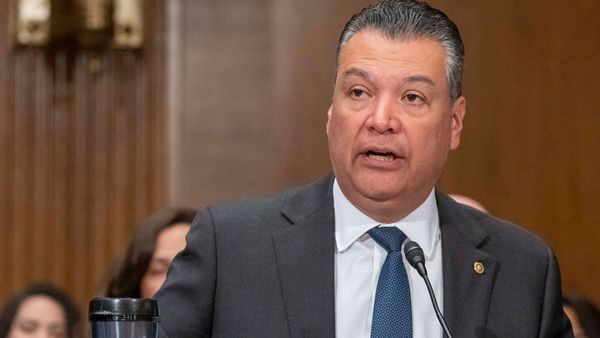October 30, 2009
Argentine Congress considers same-sex marriage
Kilian Melloy READ TIME: 3 MIN.
Is Argentina ready to become Latin America's first nation to legalize gay marriage?
Gay and lesbian activists think so - and they have a growing number of supporters in Congress, which opened debate Thursday on whether to change dozens of laws that define marriage as a union between a man and a woman.
"We can't expect social equality if the state is legitimizing inequality," said Maria Rachid, president of the Argentine Gay, Lesbian, Bisexual and Transgender Federation. "We now have the social and political context necessary to change the law."
It remains to be seen whether activists have enough votes to overcome opposition from religious groups. The Roman Catholic Church remains a driving force in Argentina, where presidents were required to be both married and Catholic until a 1994 reform.
Some Catholic and evangelical Christian groups have accused the government of trying to subvert the natural order of life, promote perversions and destroy the family as an institution.
"This should not be understood as the denial of anyone's rights," said Archbishop Jose Maria Arancedo of Santa Fe, who took a gentler tone in a recent radio address. "It's possible both to be progressive and to defend the family, founded on the institution of marriage."
Argentina's capital established its gay-friendly reputation in 2002 by becoming the first Latin American city to legalize same-sex civil unions. Four other Argentine cities later did the same, and such unions also now are recognized in Mexico City and some Mexican and Brazilian states. Uruguay alone has legalized civil unions nationwide.
Canada is the only nation in the Americas where gay marriage is now legal; in the Spanish-speaking world, only Spain has taken this additional step.
The capital's civil-unions law was initially celebrated as a huge victory for gay and lesbian rights, but such partnerships don't confer many rights exclusive to married couples, such as the right to adopt children in the name of both parents, to enable a partner to gain citizenship and to inherit wealth or be included in insurance policies.
"A civil union is a link that grants certain rights, but not those available to a married couple, which only a national law can grant," the bills' co-sponsor, Rep. Vilma Ibarra, told The Associated Press. "This is the first round in a long process, but it is already a success to have it out there."
Rep. Julian Martin Obiglio, a minority party member, is among lawmakers who would rather expand the rights that apply to civil unions than alter the definition of marriage.
"I don't think the term should be the same for a union between a man and a woman and two people of the same sex," Obiglio said.
The proposal has ruling-party support but President Cristina Fernandez has yet to take a public stand on gay marriage. Rachid said more than 20 lawmakers have signed on as supporters of same-sex marriage, and they believe they have enough votes in committee for a full vote in the lower house. It would then go to the Senate.
Rachid and her partner, Claudia Castro, were among the first same-sex couples in Buenos Aires to form a civil union - and the first to test Argentine law by applying for a marriage license in 2007. Their lawsuit over the denial is pending at the Supreme Court.
"The opinion of religious leaders who dictate how other people should lead their lives should apply only to those who share their creed, and not to the rest of society," Rachid said.
"We don't need a law to define us as a couple - we've already been a couple for more than 10 years," Castro added. "We just want to have equal rights."
If the law passes, the couple plan to be first in line for a marriage license.
Kilian Melloy serves as EDGE Media Network's Associate Arts Editor and Staff Contributor. His professional memberships include the National Lesbian & Gay Journalists Association, the Boston Online Film Critics Association, The Gay and Lesbian Entertainment Critics Association, and the Boston Theater Critics Association's Elliot Norton Awards Committee.







